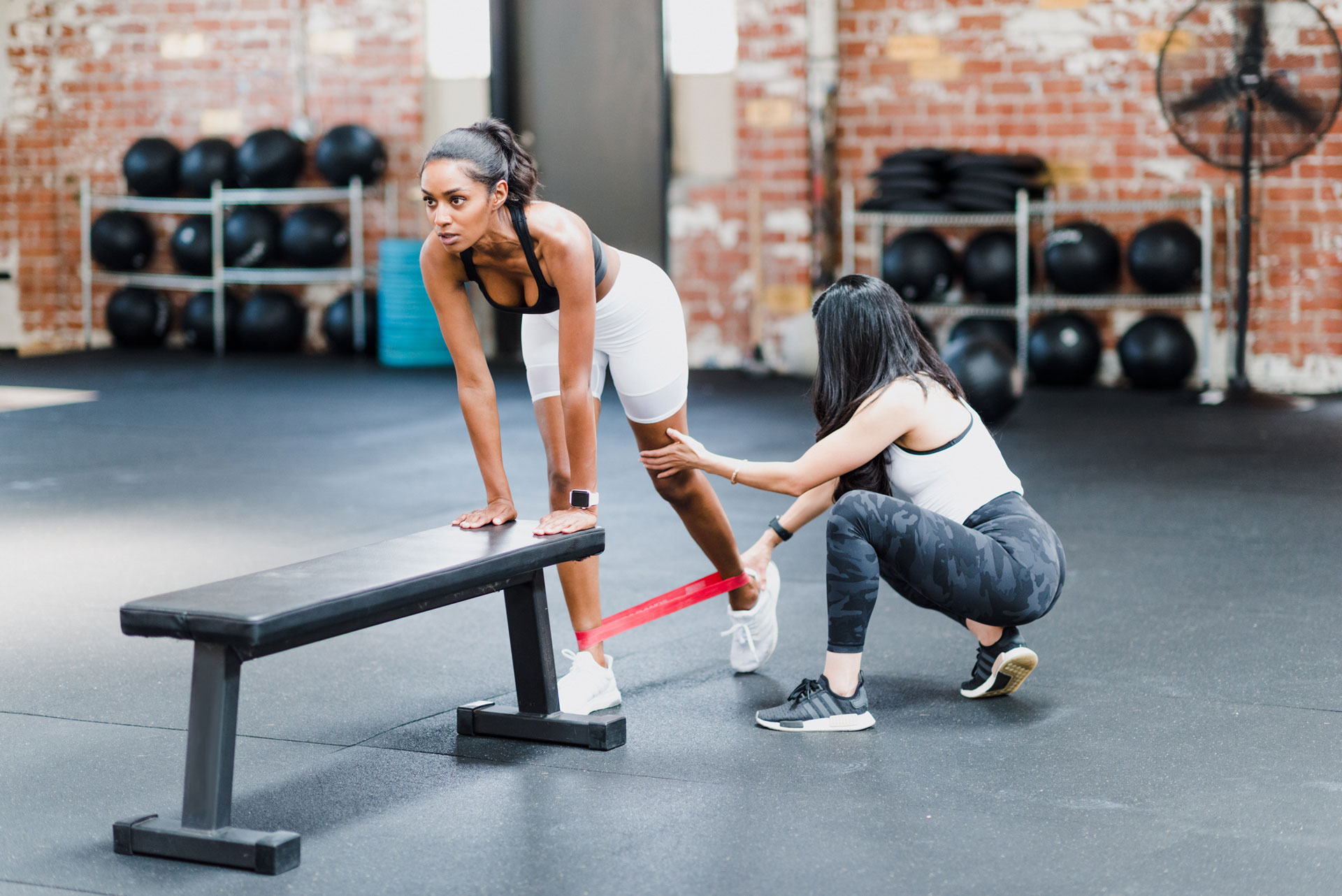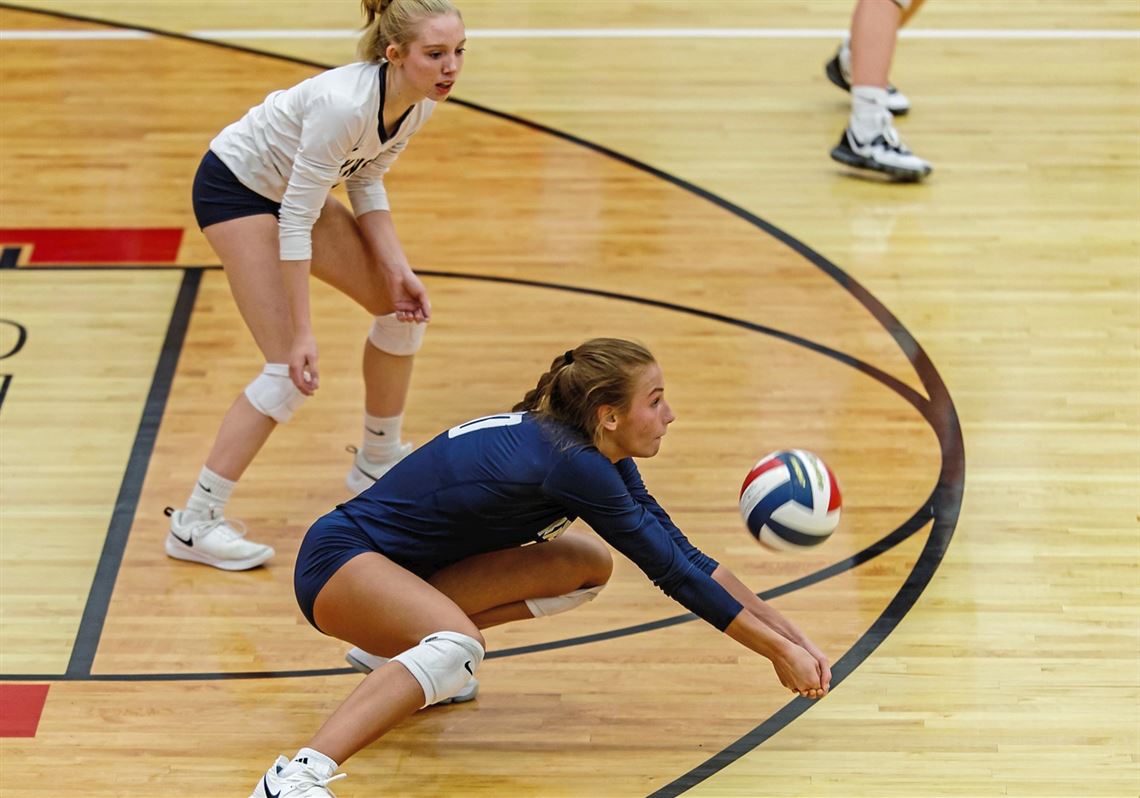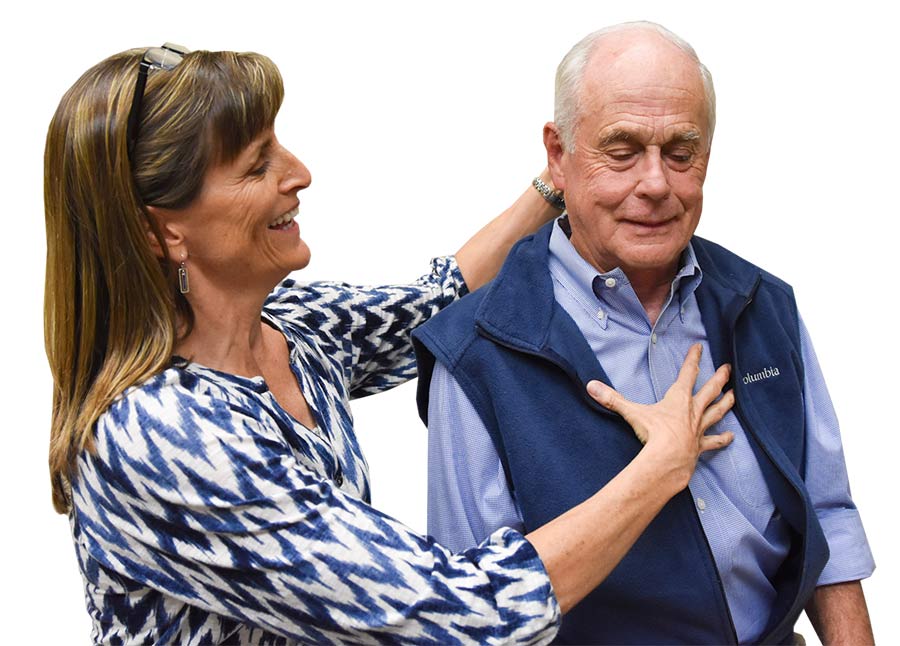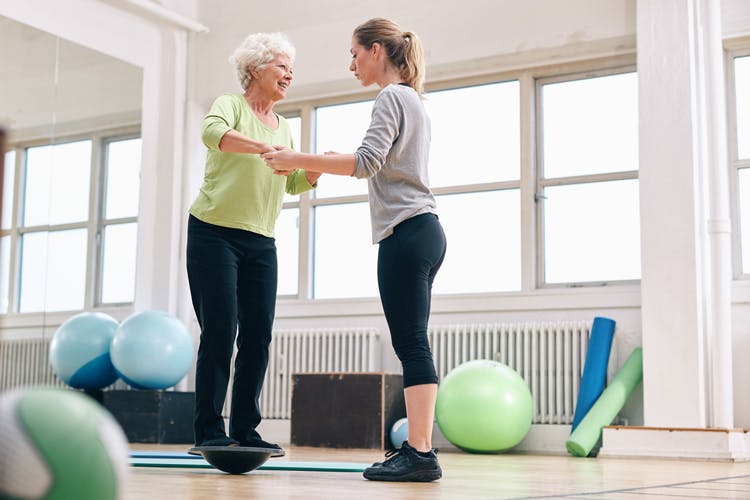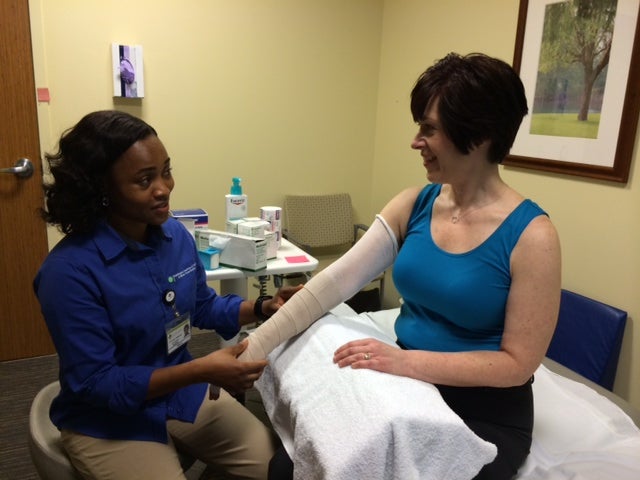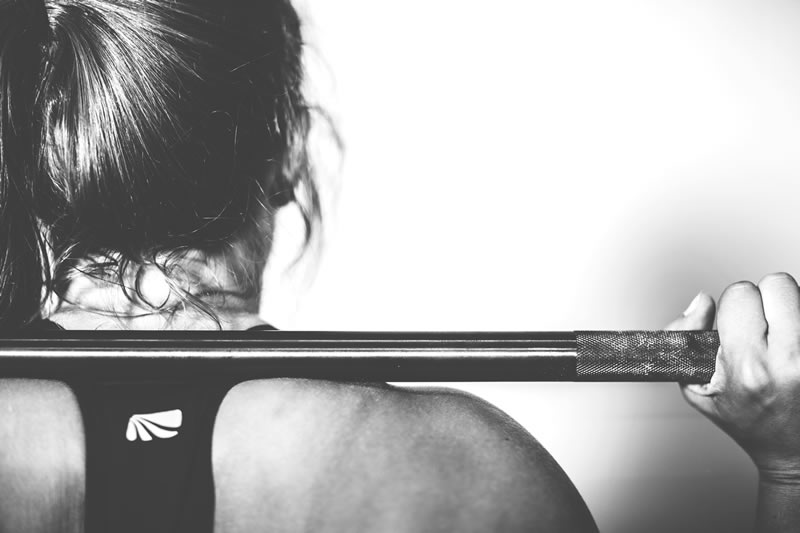
CrossFit Injuries
Physical Therapy Treatment for Crossfit Athletes
Core Physical Therapy evaluates your CrossFit injury and creates a treatment plan that gets you back to training quickly and safely.
CrossFit Injury Types
Exercising at a high level in CrossFit or any other sport or activity can increase the risk of injury, however, the benefits greatly outweigh the risks. At Core Physical Therapy, we see CrossFit athletes who experience shoulder, knee, hip, ankle, or low back pain. This pain may be due to a strength, mobility, or technique problem. We provide videotape analysis to identify faults during your lifts and offer suggestions to correct these faults. Below are common problems seen when performing overhead exercises, the deadlift, and the squat.
Overhead exercises (overhead press and strict press):
A common complaint with overhead exercises is shoulder pain. It is important to have full shoulder mobility and strength to decrease the risk of injury. We will perform an examination to identify strength and mobility deficits and lifting faults. Below are some common problems:
Strength deficits:
- Lack of control when the bar is overhead
- Generalized upper body and shoulder (rotator cuff) weakness
Mobility deficits
- Tight lats (latissimus dorsi) and pecs can prevent end range overhead mobility
- Limited joint mobility of the shoulder will decrease full overhead motion
- Limited mid-back (thoracic) mobility will prevent a full overhead range of motion
Lifting faults
- Excessive lower back movement/inability to keep the spine neutral during the lift
- Bar finishes too far forward of the body
- Improper setup
Deadlift
Complaints with the deadlift may be hip and lower back pain. An examination will identify strength and mobility deficits and the lift will be videotaped to tease out any technique faults. Common findings include:
Strength deficits:
- Lack of trunk strength
- Gluteal weakness
- Lat weakness
Mobility deficits:
- Hamstring inflexibility preventing the ability to maintain a neutral spine
- Hip joint mobility restrictions preventing normal set up position
Lifting faults:
- Poor set up
- Incorrect timing during lift
- Weight shifted forward
- Loss of neutral spine
- Bar too far away from the body when lifting
Squats
Knee, hip, and back pain are common complaints when performing the squat. We will determine the cause of your pain and how to best treat by videotape analysis and a physical examination. Pain may be due to the following:
Strength deficits:
- Gluteal weakness
- Quad weakness
- Trunk/core weakness
Mobility deficits:
- Hip joint mobility restrictions preventing the ability to squat below parallel
- Ankle mobility restrictions causing forward weight shift
- Mid-back tightness limiting ability to keep a neutral spine
- Shoulder mobility restrictions causing problems with front, back, and overhead squats
- Elbow and wrist mobility deficits affecting front squats
Lifting faults:
- Knees “caving in” during the squat
- “Butt wink” (rounding of lower back) at the bottom of the lift
- Excessive forward lean
- Lack of squat depth
- Knees “driving forward”
Just amazing, feels like family the people are so nice and know exactly what there doing. 20/10 would recommend. She goes the extra mile so I can!
Why Choose Core Physical Therapy to Treat Your CrossFit Injury?
Our physical therapists have trained through the Institute of Clinical Excellence to serve the CrossFit population. We have completed courses that provide in-depth education about key lifts and exercises to help those in the strength and conditioning population. We will provide you with accurate load management in addition to strengthening and flexibility exercises that are tailored to your needs. Because of our low patient volume, we have more time to listen to your concerns and effectively treat your problems.
Let Core Physical Therapy help treat your CrossFit injury and get you back on track quickly!
Treatments for CrossFit Injuries
Strengthening
After a thorough exam, our physical therapists will provide appropriate strengthening and stability exercises targeted to the CrossFit athlete. This often includes rotator cuff strengthening.
Mobility/Flexibility
If joint restrictions or muscle tightness is detected on your exam, treatment may include manual work to improve joint or soft tissue mobility of the shoulders or spine and/or flexibility exercises.
Technique Analysis
Our physical therapists will provide coaching and corrective exercises to improve your technique after videotape analysis. This is critical in order to prevent the recurrence of your symptoms.
Modalities
Treatment will always be tailored to you. If indicated, modalities such as electrical stimulation, cupping, dry needling, ice with compression, tooling, and taping may be appropriate.
Meet the Core Physical Therapy Team

Kim Bassler PT, DPT
Physical Therapist, Clinical Athlete Weightlifting Coach
Kim Bassler graduated with a Bachelor of Arts degree in English from Virginia Tech and worked in Blacksburg for several years before earning her Doctorate in Physical Therapy from Radford University.

Brenda Miller MPT, OCS, CLT, CMTPT
Owner & Physical Therapist
Brenda Miller is the founder and owner of Core Physical Therapy. She earned her Bachelor of Science degree in Exercise Science from Pennsylvania State University, then completed her master’s degree in Physical Therapy from Arcadia University in Glenside Pennsylvania.

Morgan Chocklett Corl DPT, OCS
Physical Therapist
Morgan Chocklett Corl earned her Bachelor of Science Degree in Exercise and Health Promotion from Virginia Tech (GO HOKIES!!) and her Doctorate of Physical Therapy from Mary Baldwin University. She is thrilled to be back in Blacksburg and flaunt her maroon and orange!

Maria "Peti" Tibung, PT, DPT
Physical Therapist
Maria “Peti” Tibung earned her Bachelor of Science Degree in Physical Therapy from the University of the Philippines and her Doctorate of Physical Therapy from Shenandoah University.

Meghan Howes DPT, PhD
Physical Therapist
Meghan Howes earned her Bachelor of Science degree in Biomedical Engineering from Bucknell University in Pennsylvania followed by her PhD in Biomedical Engineering from Virginia Tech.
Articles Related to CrossFit Injuries
Do You Experience Knee Pain When You Run?
DO YOU EXPERIENCE KNEE PAIN OR SNAPPING TO THE OUTSIDE OF YOUR KNEE WHEN YOU RUN? IS RUNNING DOWNHILL PAINFUL? If you answered yes to any of these questions, one potential problem may be iliotibial band syndrome....
Core Physical Therapy Specializes In
Running Injuries
Running injuries are common whether you are a novice or competitive runner. Training errors, inappropriate footwear, mechanical faults, weakness or flexibility may be the issue. At Core Physical Therapy, we provide a comprehensive evaluation that addresses posture, strength, shoe wear, flexibility and range of motion. Your running will be videotaped and analyzed for mechanical faults. Following the exam, you will learn about potential causes for your pain and how to treat it with exercises, changes in shoe wear or specific suggestions on how to improve your running mechanics
CrossFit Injuries
CrossFit has become extremely popular over the past twenty years. The program emphasizes cardiovascular endurance, stamina, strength, flexibility, power, speed, agility, and balance. Occasionally, Crossfit athletes suffer an injury due to training errors or improper technique. The physical therapists at Core are trained to assist CrossFit athletes by improving their technique or any deficits they may exhibit with strength, flexibility, or joint mobility. Videotape analysis may be used to break down movement patterns to better assist with improving technique.
Student Athletes
Core Physical Therapy works with many student-athletes from Virginia Tech and the local elementary, middle, and high schools who injure themselves while participating in their sport. The athletic background of the physical therapists gives them a better understanding of what is required to return to competitive athletics. We treat overhead athletes such as volleyball, tennis, baseball, and softball players as well as gymnasts, runners, swimmers, bikers, and soccer players among others. Common injuries involve the shoulder, back, knee, and ankle. We try our best to accommodate the student-athletes schedule by offering early morning and late treatment hours.
Post Surgery Rehabilitation
If conservative management is unsuccessful in relieving pain and disability, surgery may be an option. The quality of physical therapy following surgery will greatly impact recovery. At Core Physical Therapy, we take your recovery very seriously. We make it a point to understand what was done surgically and will communicate with the surgeon as needed. Common surgeries seen at Core include but are not limited to ACL reconstructions, meniscectomies, spinal fusions, discectomies, carpal tunnel repairs, labral repairs, rotator cuff repairs and joint replacements to the shoulder, knee, and hip.
Dizziness | Vertigo | Balance Difficulties
The prevalence of falls increases with age. Vision, strength, sensation, and the inner ear (vestibular system) work together to maintain balance and equilibrium. If any of these systems are not functioning optimally, dizziness, and poor balance may result in increasing the risk of falls and severely impacting the quality of life. At Core Physical Therapy, an evaluation will be performed to determine the cause of the imbalance or dizziness. Treatment will be implemented to address the deficits to restore balance and resolve the dizziness.
Breast Cancer And Lymphedema
The number of cancer survivors continues to increase in the USA due to better treatment. Breast cancer is one of the most common cancers among women. Cancer and the treatment for cancer may lead to problems such as scar tissue and mobility restrictions, weakness, cancer-related fatigue syndrome, cording (axillary web syndrome), and lymphedema (post-cancer edema). At Core Physical Therapy, we have a certified lymphedema specialist who is able to address these issues with lymphatic manual drainage, bandaging, exercises, manual work, stretching, and cardiovascular conditioning.
Helpful Links

922 University Blvd, Suite 204
(Behind Macado's Restaurant)
Blacksburg VA 24060
Copyright © 2023 Core Physical Therapy
Website design & development by
Carbon Six Digital Marketing Agency


